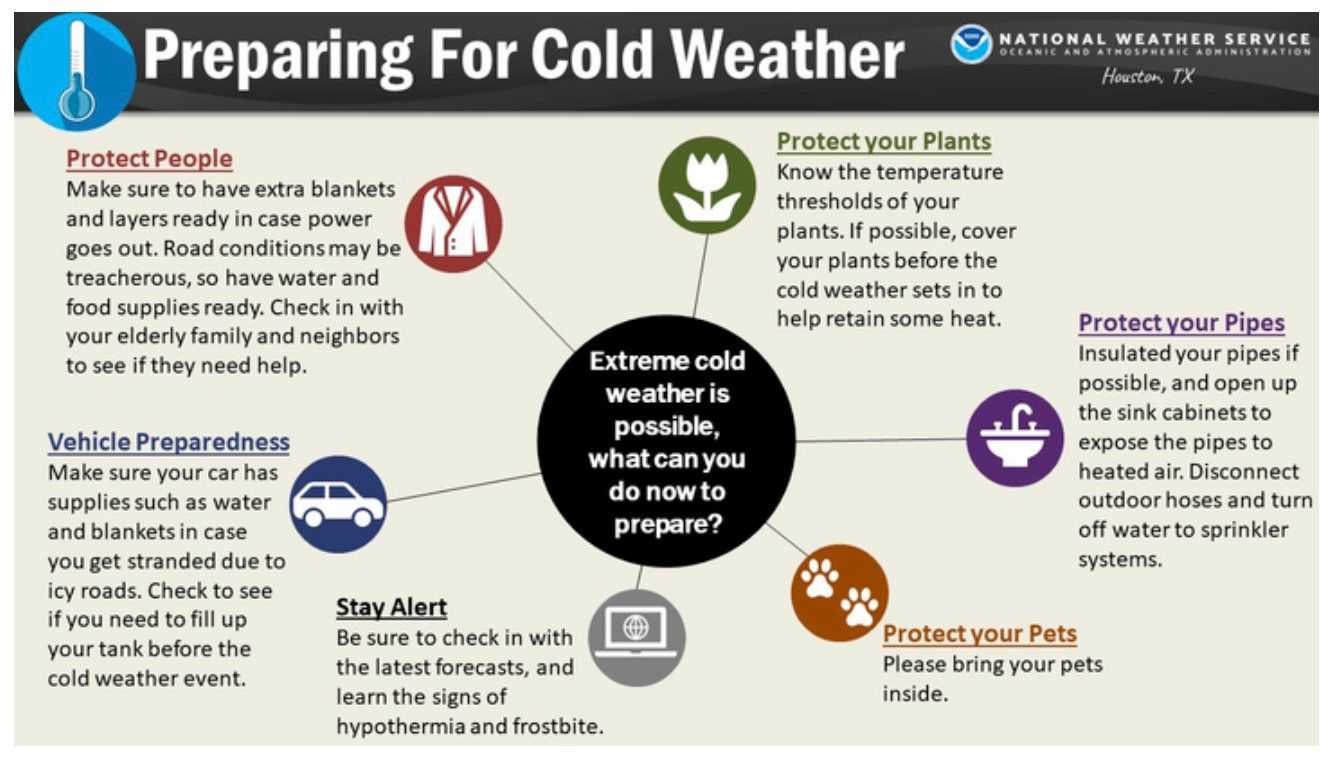
Extreme cold weather, freezing precipitation and gusty winds are expected over the next 72 hours. Take precautions now to protect your home from damage. Conditions are expected to deteriorate quickly over night.
Before the Freeze
- Protect faucets, outdoor pipes, and exposed pipes in unheated areas by wrapping them with rags, newspaper, trash bags, or plastic foam.
- Insulate your outdoor back flow preventer and be sure its lid is on tight.
- Cover any vents around your home’s foundation.
- Drain and store water hoses indoors.
- Protect outdoor electrical pumps.
- Drain swimming pool circulation systems or keep the pump motor running. (Run the pump motor only during a short freeze Running the motor for long periods can damage it.)
- Drain water sprinkler supply lines.
- Open the cabinets under your sinks in the kitchen and bathrooms to allow heated air to circulate around the water pipes.
- Set your thermostat to a minimum of 55 degrees, especially when you are gone for the day or away for an extended period.
- Make sure you know where your home’s water shut off valve is and how to turn it on and off.
If Your Pipes Freeze
If a pipe bursts and floods your home, turn the water off at the shut-off valve. Call a plumber for help if you can’t find the broken pipe or if it’s inaccessible. Don’t turn the water back on until the pipe has been repaired. If the pipe hasn’t burst, thaw it out with an electric heating pad, hair dryer, portable space heater, or towel soaked with hot water. Apply heat by slowly moving the heat source toward the coldest spot on the pipe. Never concentrate heat in one spot because cracking ice can shatter a pipe. Turn the
faucet on and let it run until the pipe is thawed and water pressure returns to normal. Don’t use a blowtorch or other open-flame device. They are fire risks and carbon monoxide exposure risks.
Stay informed – Sign up for Resident Alerts today!
Stay tuned to your local weather source for updates.
